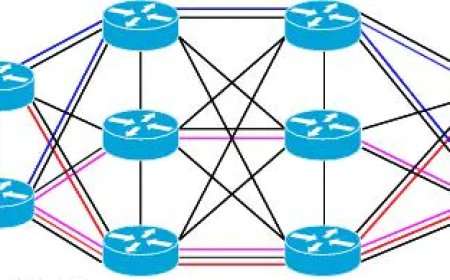Virtualization Technology
Virtualization is the process of creating a virtual version of something, such as an operating system, a server, a storage device or network resources.

Virtualizaion is a technology that has revolutionized the way businesses operate, providing numerous benefits including cost savings, improved resource utilization and flexibility.
Before the widespread adoption of virtualization, businesses typically ran a single operating system and application on each physical server. This meant that if a company needed to run multiple applications or operate multiple operating systems, it would require multiple physical servers. This could be expensive and inefficient, as each server would require its own hardware, maintenance, and space.
Additionally, without network virtualization, businesses were limited in their ability to segment their network traffic and improve security. They would need to rely on physical hardware, such as firewalls and switches, to control and direct network traffic.
The lack of virtualization also made it more difficult for businesses to scale their operations, as they would need to purchase and set up additional physical hardware in order to meet increasing demand.
Overall, the absence of virtualization technologies led to a less flexible and efficient computing environment for businesses. It also required a larger investment in hardware and other resources.
One common application of virtualization is in the creation of virtual machines (VMs). A virtual machine is a software program that emulates the hardware of a physical computer, allowing it to run its own operating system and applications as if it were a physical device. This allows businesses to run multiple operating systems and applications on a single physical server, rather than needing a separate server for each. This can greatly reduce hardware and maintenance costs, as well as increasing the efficiency of resource utilization.
Another form of virtualization is known as network virtualization, which involves the creation of virtual networks that are separate from the physical network infrastructure. This allows businesses to create and manage multiple virtual networks within a single physical network, enabling them to segment their network traffic and improve security.
Virtualization has also had a major impact on the field of cloud computing. Cloud providers use virtualization to create and manage large pools of virtualized resources, which can then be accessed over the internet by businesses on an as-needed basis. This allows businesses to pay for only the resources they use, rather than needing to invest in and maintain their own physical infrastructure.
In summary, virtualization is a powerful technology that has had a significant impact on the way businesses operate. It allows for cost savings, improved resource utilization and flexibility, and has paved the way for the development of cloud computing. As the use of virtualization continues to grow, it is likely to have even more significant effects on the way businesses function in the future.
There are several companies that are known for their virtualization products and services. Some of the leading companies in this field include:
-
VMware: VMware is a pioneer in virtualization, with a range of products that allow businesses to virtualize their servers, desktops, and other resources.
-
Microsoft: Microsoft's Hyper-V virtualization technology is built into its Windows operating system, and is widely used by businesses for server virtualization.
-
Oracle: Oracle offers a variety of virtualization products, including virtualization solutions for servers, storage, and networking.
-
Red Hat: Red Hat is a leading provider of open-source virtualization solutions, including its Red Hat Virtualization platform.
-
Citrix: Citrix is a major player in the virtualization market, with a range of products for virtualizing servers, desktops, and applications.
The top 3 benefits of virtualization as a summary:
- Reduced Expenses
- Resiliency
- High Availability (HA)
What's Your Reaction?























